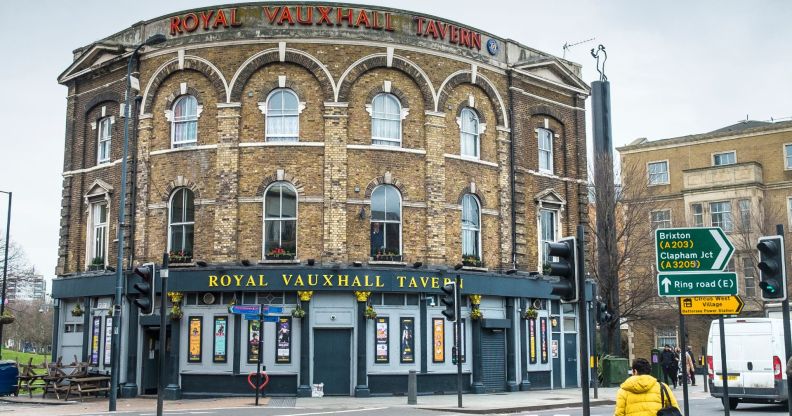Bosses at famous LGBTQ+ venue Royal Vauxhall Tavern to step down after Eurovision controversy

Historic London queer venue Royal Vauxhall Tavern to be sold following Eurovision controversy (Gordon Scammell/Loop Images/Universal Images Group via Getty Images)
Historic London queer venue Royal Vauxhall Tavern to be sold following Eurovision controversy (Gordon Scammell/Loop Images/Universal Images Group via Getty Images)
The directors of historic London queer venue the Royal Vauxhall Tavern (RVT) are set to leave the business after 20 years.
James Lindsay and John Kerr announced on Wednesday (15 May) that they will be stepping away from the venue – built in 1865 and established as an LGBTQ+ cabaret venue in the 1980s – with a “very heavy heart”.
In a statement on Twitter/X, chief executive and managing director Lindsay said: “After 20 years of stabilising and growing the RVT, it is with a very heavy heart, John and I have made the decision that we are not the right people to continue running [it].
“We have decided to sell our business interest and have instructed agents to make this happen. I would like to thank everyone who has supported us, particularly our invaluable team.”
The Royal Vauxhall Tavern, which regularly hosts drag and cabaret events, was home to Paul O’Grady’s performances as drag queen Lily Savage for eight years, and was also known for rumours that Freddie Mercury once took Princess Diana in disguise for a night out there.
Earlier this month, the South London gay nightspot was criticised after it announced it would reinstate and previously cancelled screening of the Eurovision Song Contest grand final, before cancelling it once again following backlash.
After calls to boycott the event because of Israel’s participation, with regular several drag and cabaret performers staging a walk-out, the Royal Vauxhall Tavern announced that it would be closed to all events on the day of the final.
Prior to the contest, groups urged UK representative Olly Alexander and other contestants to withdraw, with the ongoing conflict in Gaza estimated to have cost more than 35,000 Palestinian lives since Hamas’ terrorist attack on Israel last 7 October.
The owners were criticised further when they claimed in an interview with Irish Times that the venue was “not political”.
Lindsay added that the Royal Vauxhall Tavern had struggled to cater for both the younger political crowd, whom he described as “non-binary and all that”, and older patrons.
“I don’t want to say my older crowd doesn’t care about the issue, but they don’t quite get the history of it in the same way,” he said.
“In simple terms, we’re a gay bar, not a political venue. People come here to get away from talk of wars.”

